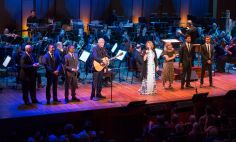Though funding opportunities supported by NIH and the National Endowment for the Arts (NEA) as part of Sound Health were just announced, separate research related to music, arts, and health is already underway, says Thomas Cheever, M.D., who helps lead the initiative.
A few of these studies are investigating how music—along with other types of art like theater and dance—can affect brain development in children, treatment for seriously ill patients, and care for aging patients.
The ABCD Study
This research examines how experiences in adolescence shape a child’s behavior and development. The study, known as the Adolescent Brain Cognitive Development (ABCD) study, is led by the National Institute on Drug Abuse. With support from the NEA, the study is tracking how childhood arts exposure, including music, impacts development. Researchers also plan to monitor factors such as sports participation, video games, social media, sleep patterns, and smoking. The study will take place at 21 research sites across the country, and researchers plan to enroll more than 10,000 children between the ages of 9 and 10. It’s the largest long-term study of brain development and child health in the U.S.
Arts-Based Approaches in Palliative Care for Symptom Management
Researchers are investigating how the arts, including music, dance, theater, and expressive writing, can help patients with chronic or terminal illnesses manage symptoms. The goal of the study is to develop guidelines for future palliative care arts research that can help reach as many patients as possible. That includes patients across age groups and with different types of chronic conditions. The study is supported by multiple NIH institutes, including the National Center for Complementary and Integrative Health and the National Institute of Nursing Research.
Roybal Centers for Translational Research on Aging
Supported by the National Institute on Aging, the Roybal Centers conduct large pilot studies to investigate how some activities or behaviors—such as physical activity, use of technology, and music—can promote the health and well-being of people as they get older. Participating research centers are encouraged to look at how music and the arts can affect stress, anxiety, and the subjective well-being of people as they age.







